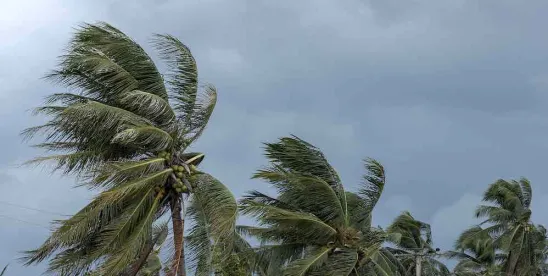Although many organizations in Texas are still grappling with the impacts from February’s winter storm, hurricane season is right around the corner. Officially, it runs from June 1 to November 30. But due to the steady increase of early-season hurricanes, NOAA will begin issuing regular tropical weather outlooks starting on May 15 and is considering making that the official start of hurricane season. And as we’ve seen so frequently over the past several years, this season is once again expected to be “above-average” with forecasts centering on 17 named storms and 8 hurricanes, with 3 of them expected to be major.
The short window between winter’s late-season freeze and summer’s early-season storms is challenging – many businesses spend the weeks leading up to hurricane season getting ready, but some of them are still working to repair damage from the winter storm. And aside from physical readiness, insurance must also be addressed.
For example, policyholders that suffered damage from the winter storm should have documented any damage by now so that they can respond to “pre-existing” damage arguments from future storms. Also, asset verification, compliance with any protective safeguard warranties (e.g., earthen berms) and business continuity plans should be updated.
At the same time, insureds with claims from the winter storm must continue the adjustment process. Normally, claims arising from natural disasters tend to center around property damage and revenue impacts. But several organizations had extraordinary cost impacts that turned out to be the most significant aspect of their winter storm claims, such as skyrocketing power bills for industrial clients that had to purchase power on the open market to maintain their assets in a safe state or healthcare clients that had to truck in water to take care of patients when Houston’s water supply went down. Bracewell is helping clients make claims for these costs under “sue and labor” and related coverage provisions as expenses incurred to protect property and avoid losses.
Texas courts addressing storm claims have permitted recovery for extra security, overtime pay, meal expenses, temporary locations and employee lodging.1 In essence, costs incurred due to the winter storm may be recoverable where those costs were reasonable and necessary.2 Although choice-of-law provisions in property insurance policies are relatively rare, they tend to default to New York law, which also allows recovery of these costs.3
Taking these steps now will help make sure that insureds are in the best possible position to deal with the winter storm behind us and the summer storms ahead.
1. Travelers Indem. Co. v. Pollard Friendly Ford Co., 512 S.W.2d 375, 381 (Tex. App.—Amarillo 1974, no writ); Rimkus Consulting Group, Inc. v. Hartford Cas. Ins. Co., 552 F. Supp. 2d 637, 646 (S.D. Tex. 2007).
2. GBP Partners, Ltd. v. Maryland Cas. Co., 505 Fed. Appx. 389, 393 (5th Cir. 2013).
3. Janet Nav. Inc. v. Sturge, 711 F. Supp. 119, 131 (S.D.N.Y. 1989).




 />i
/>i

